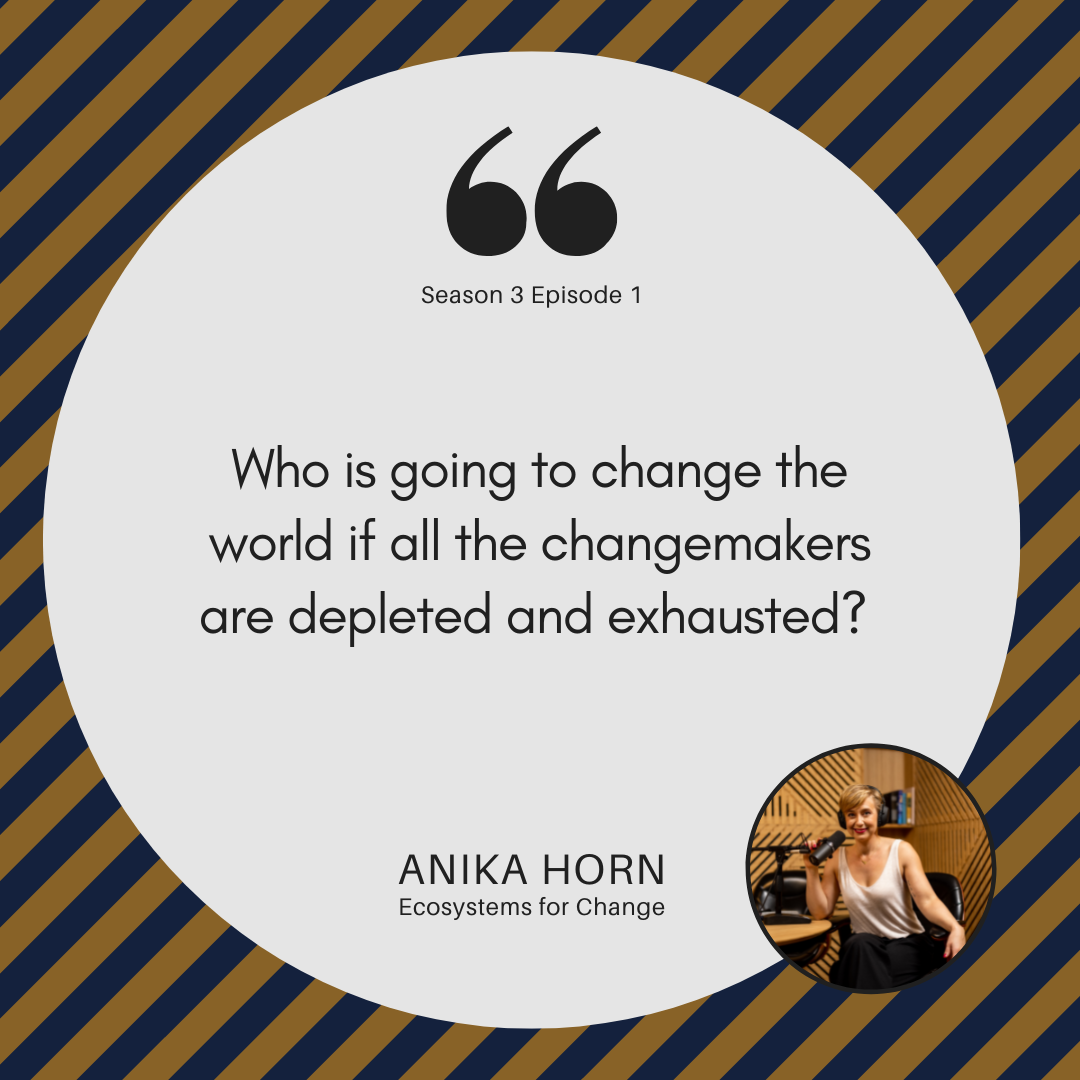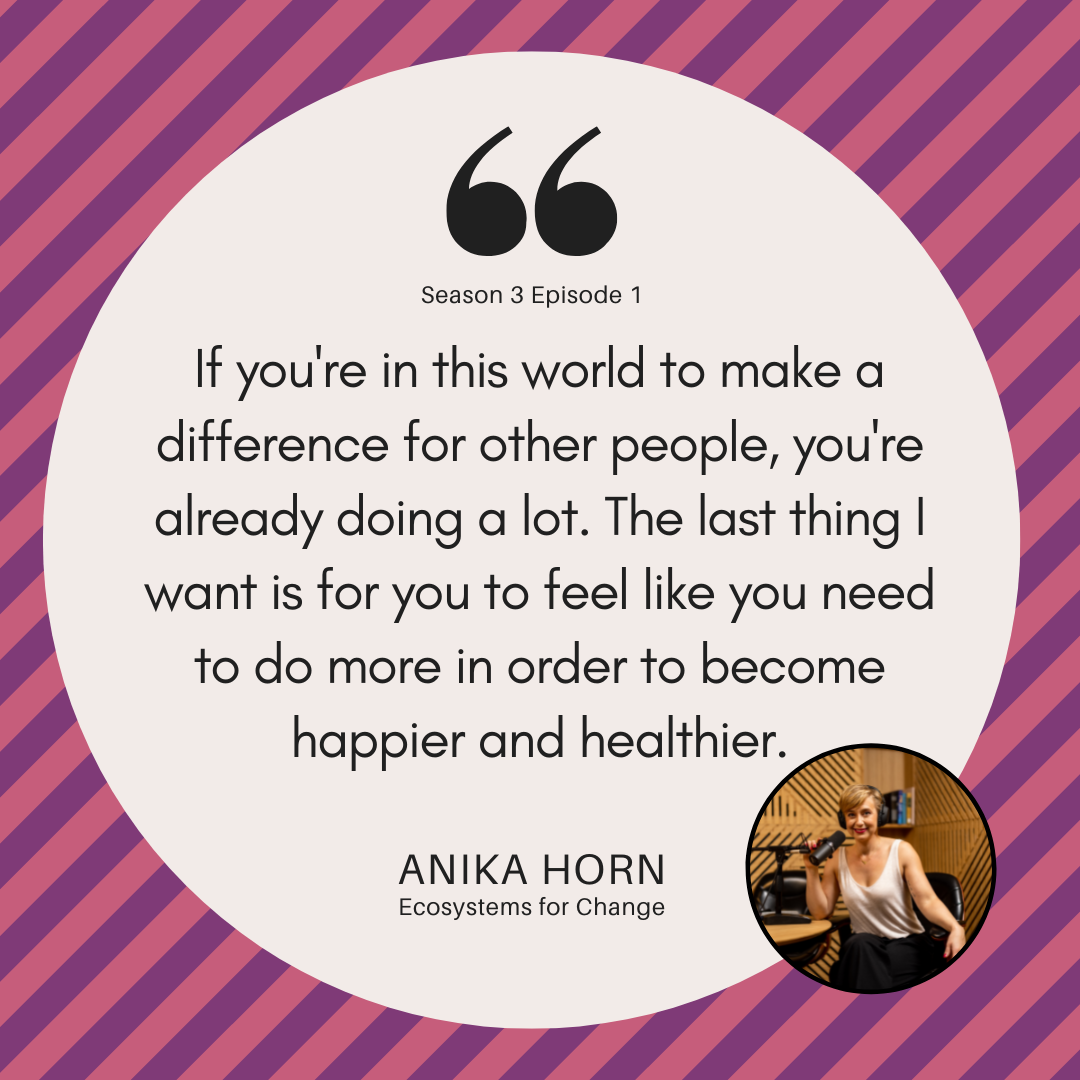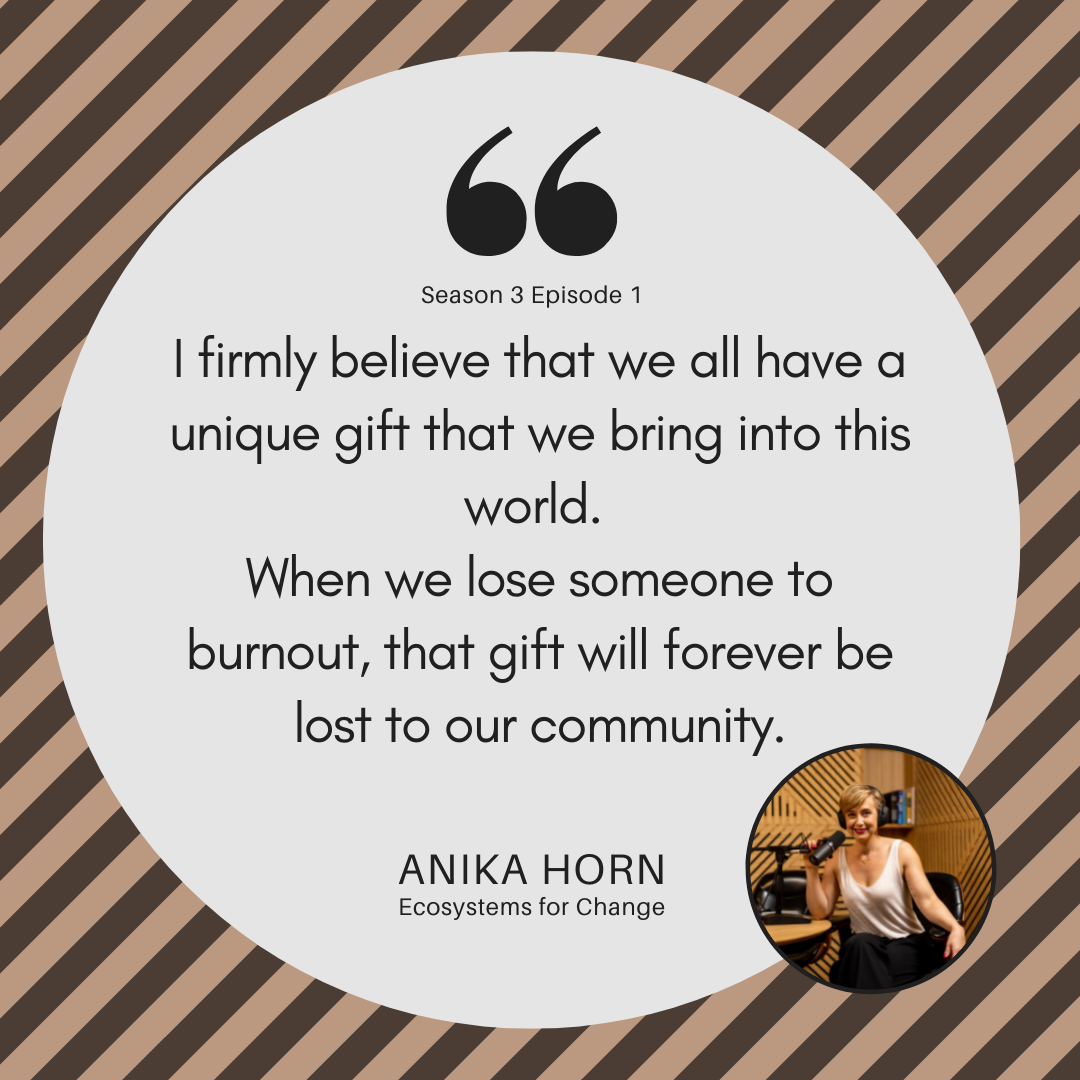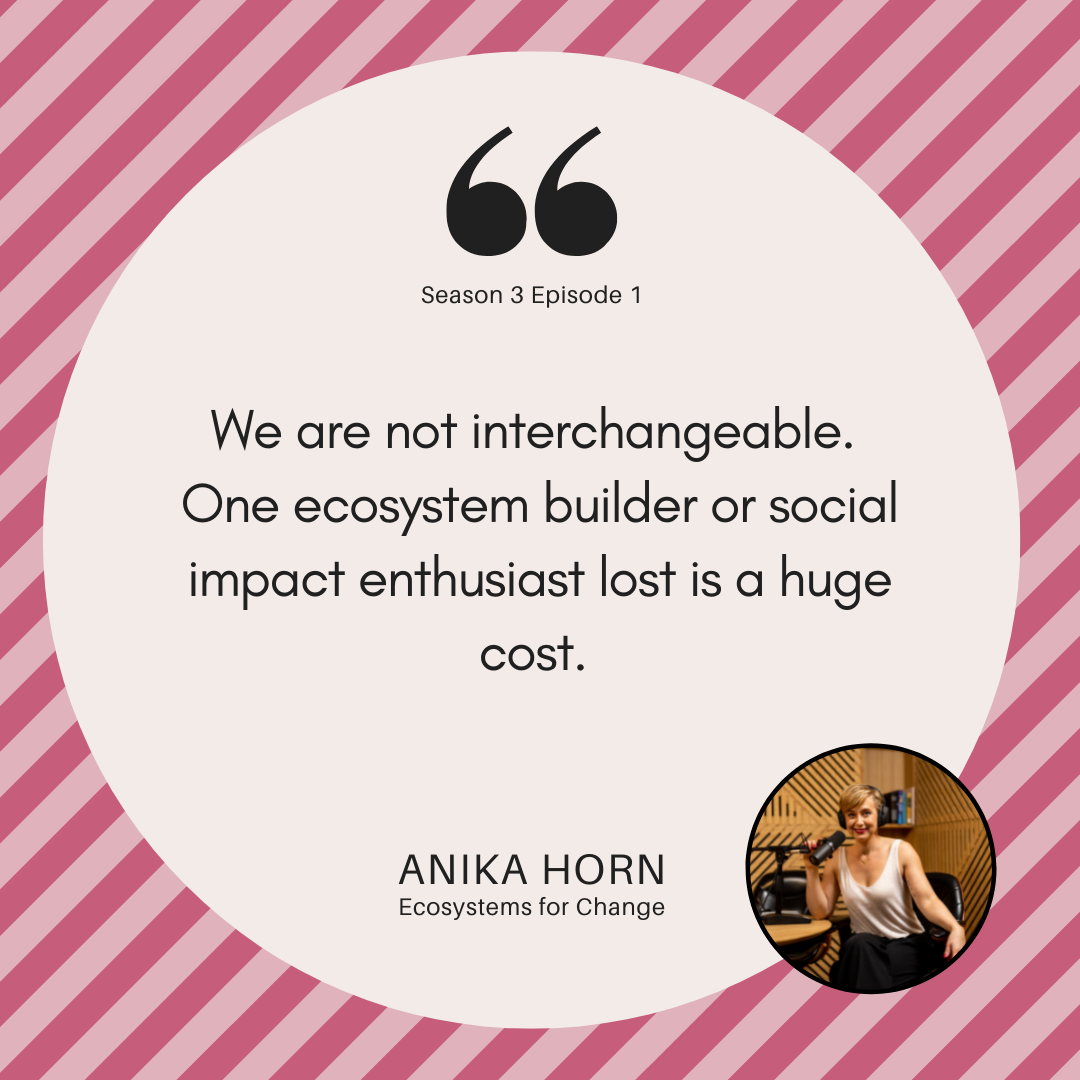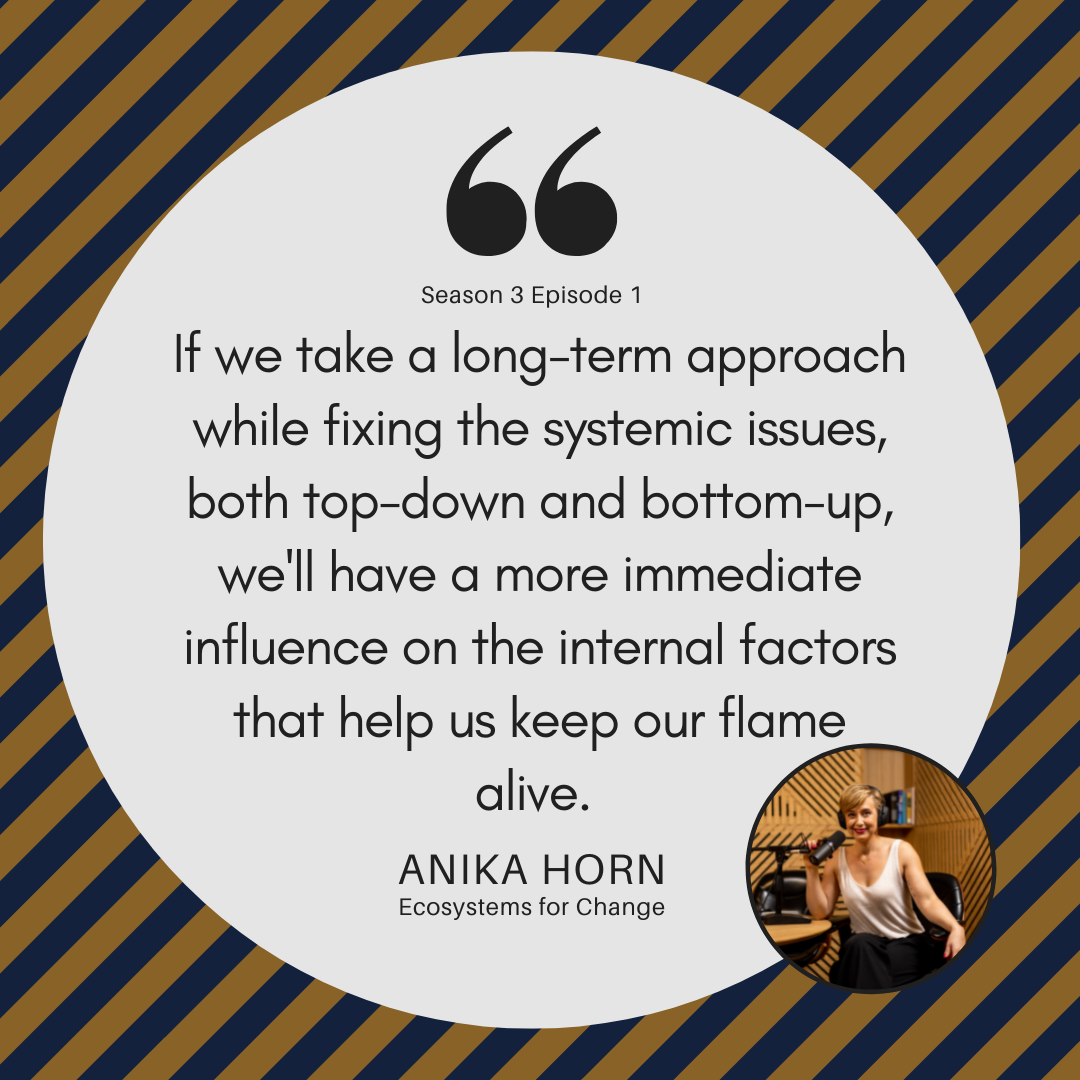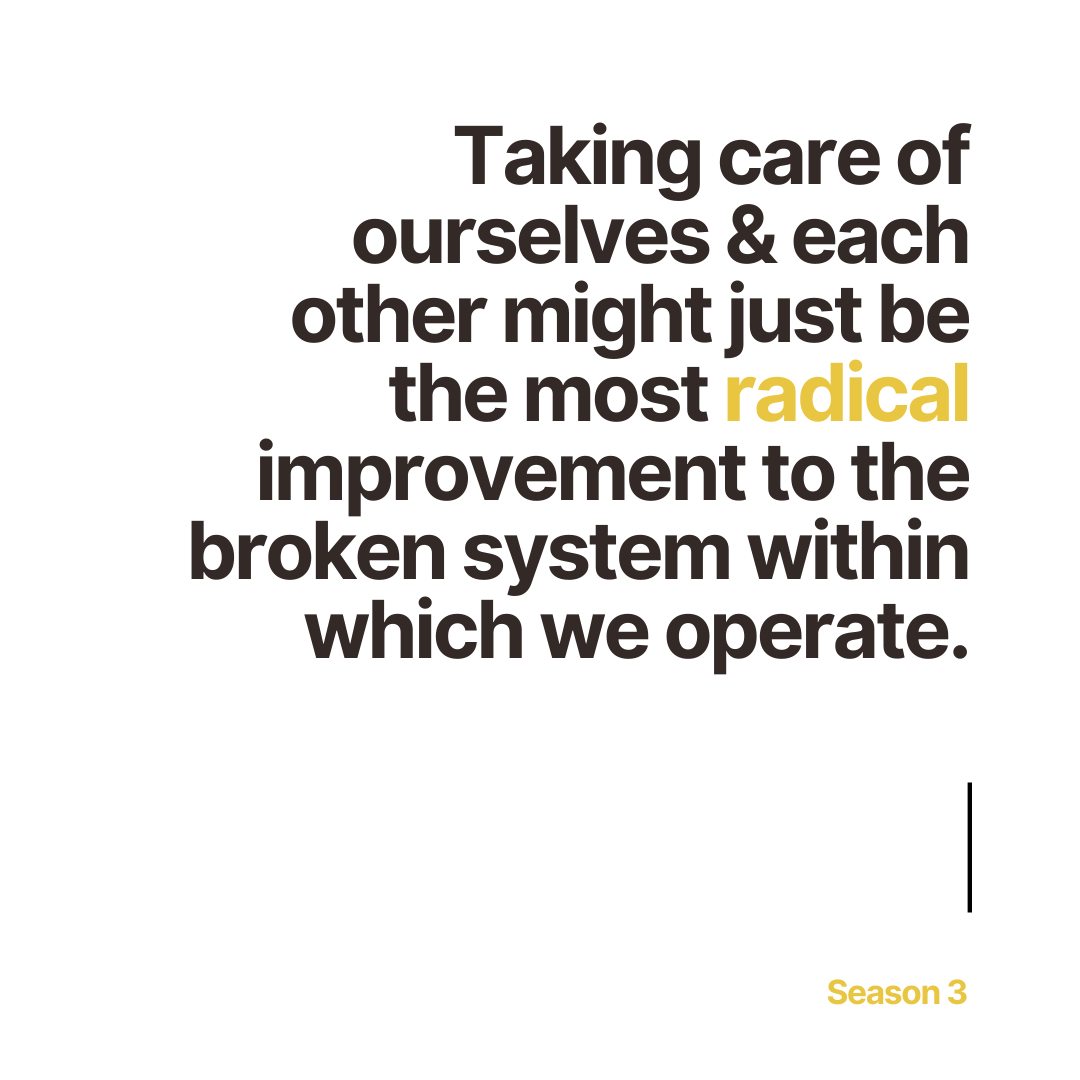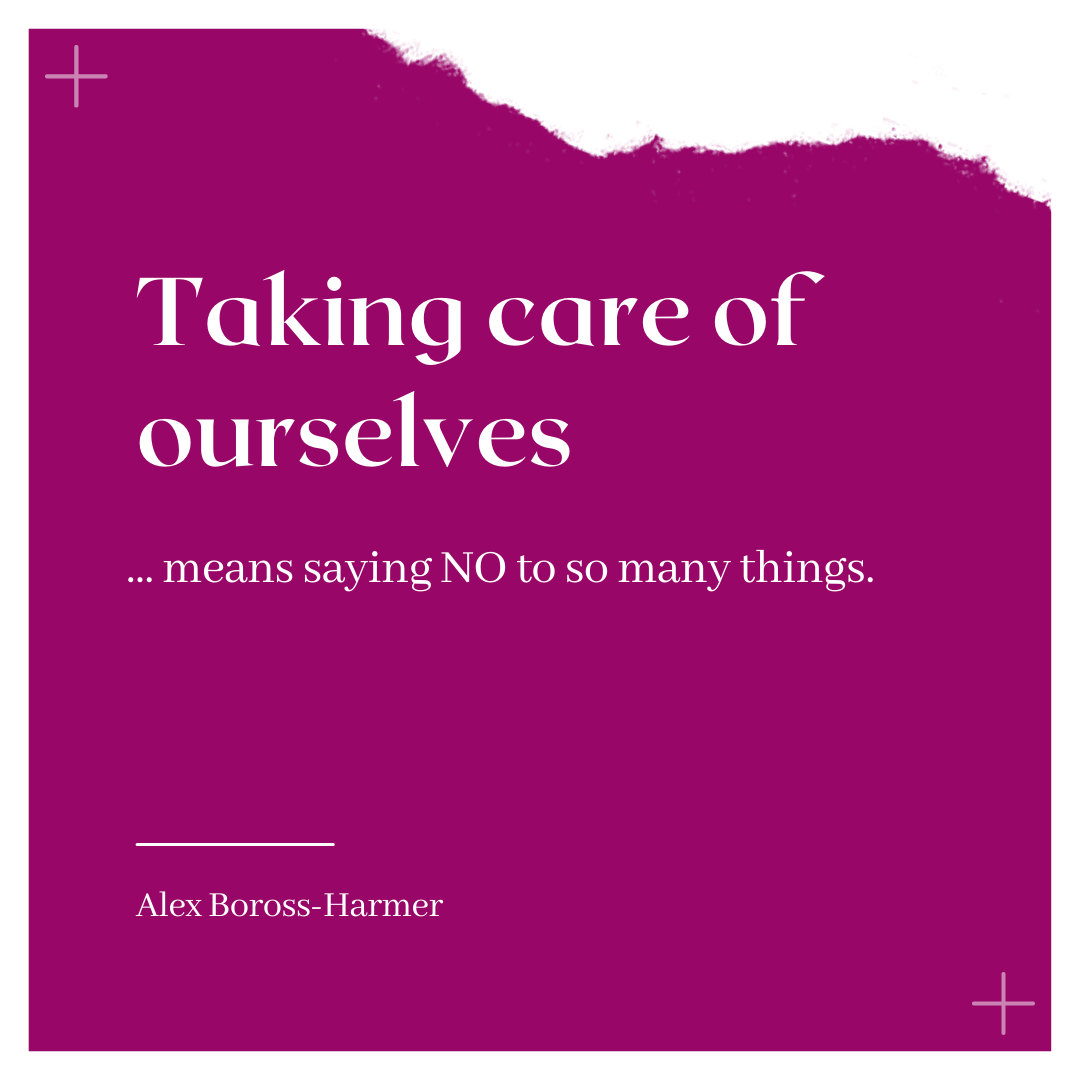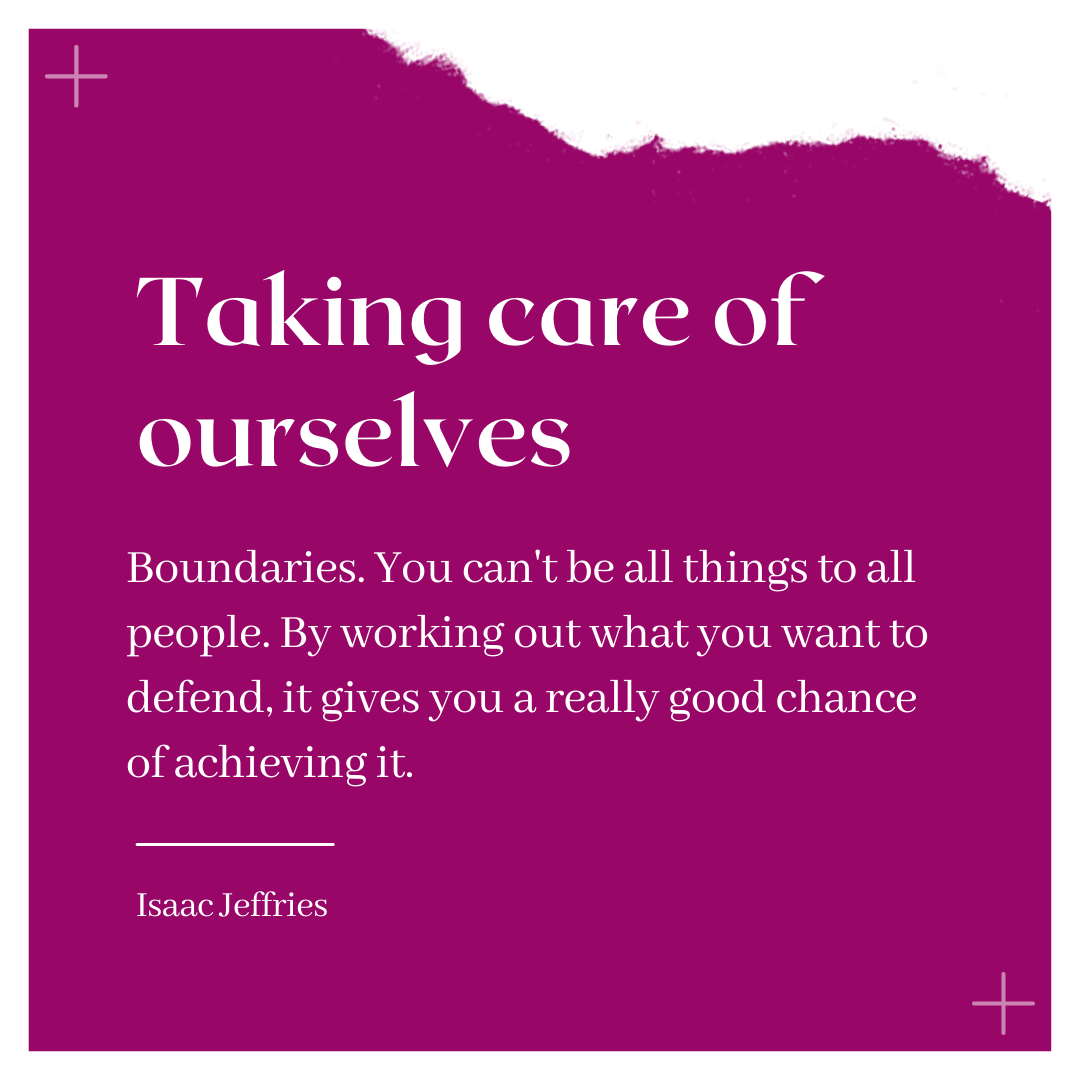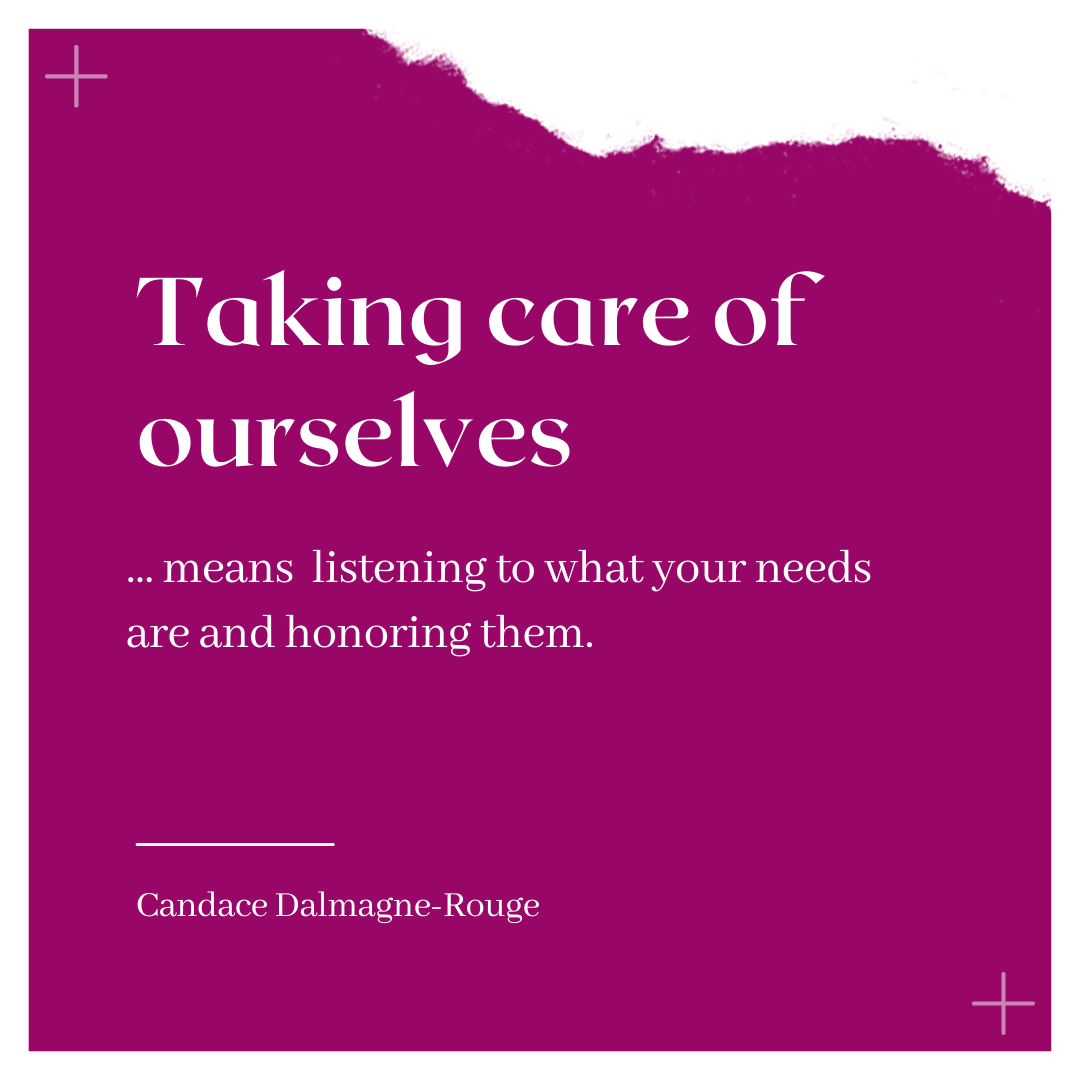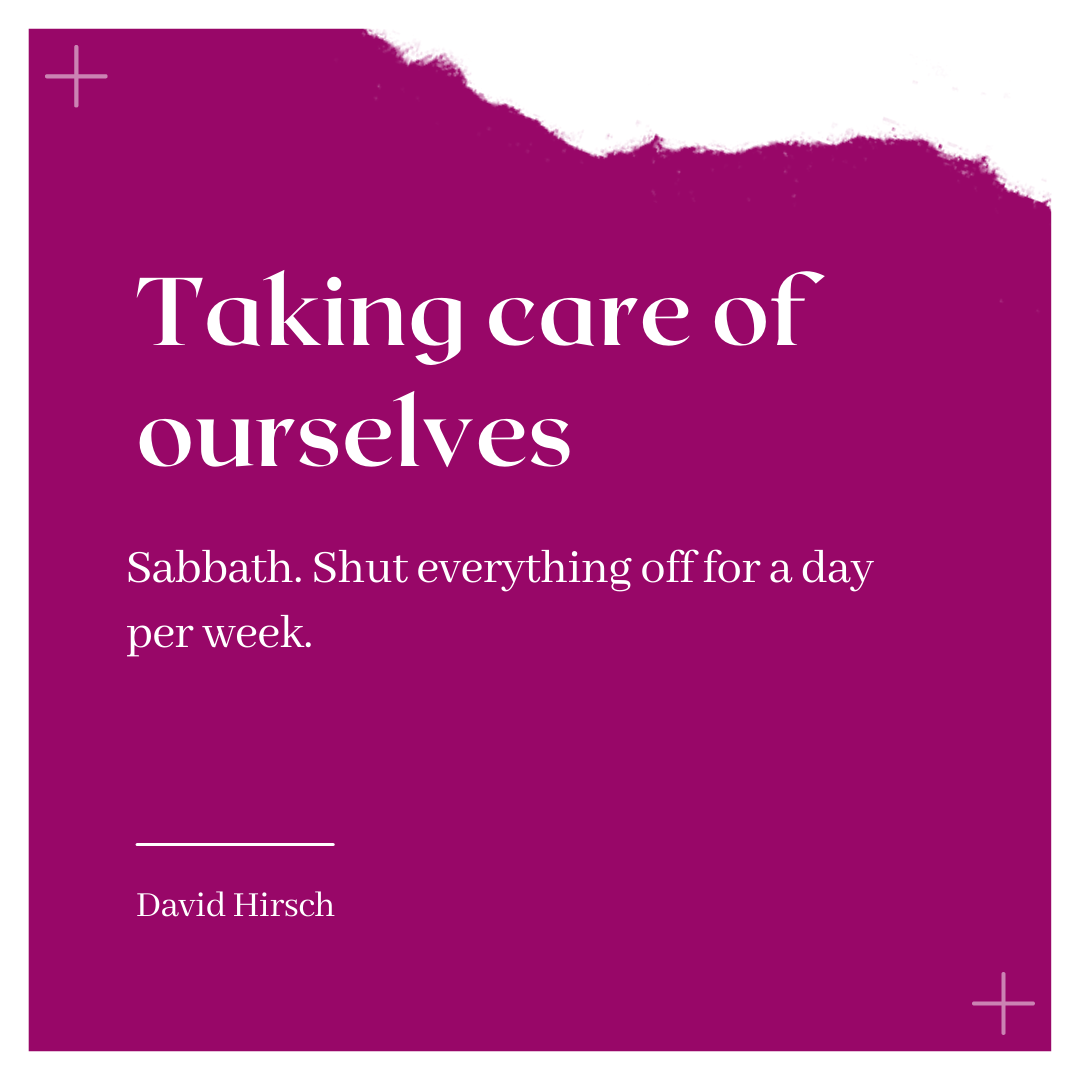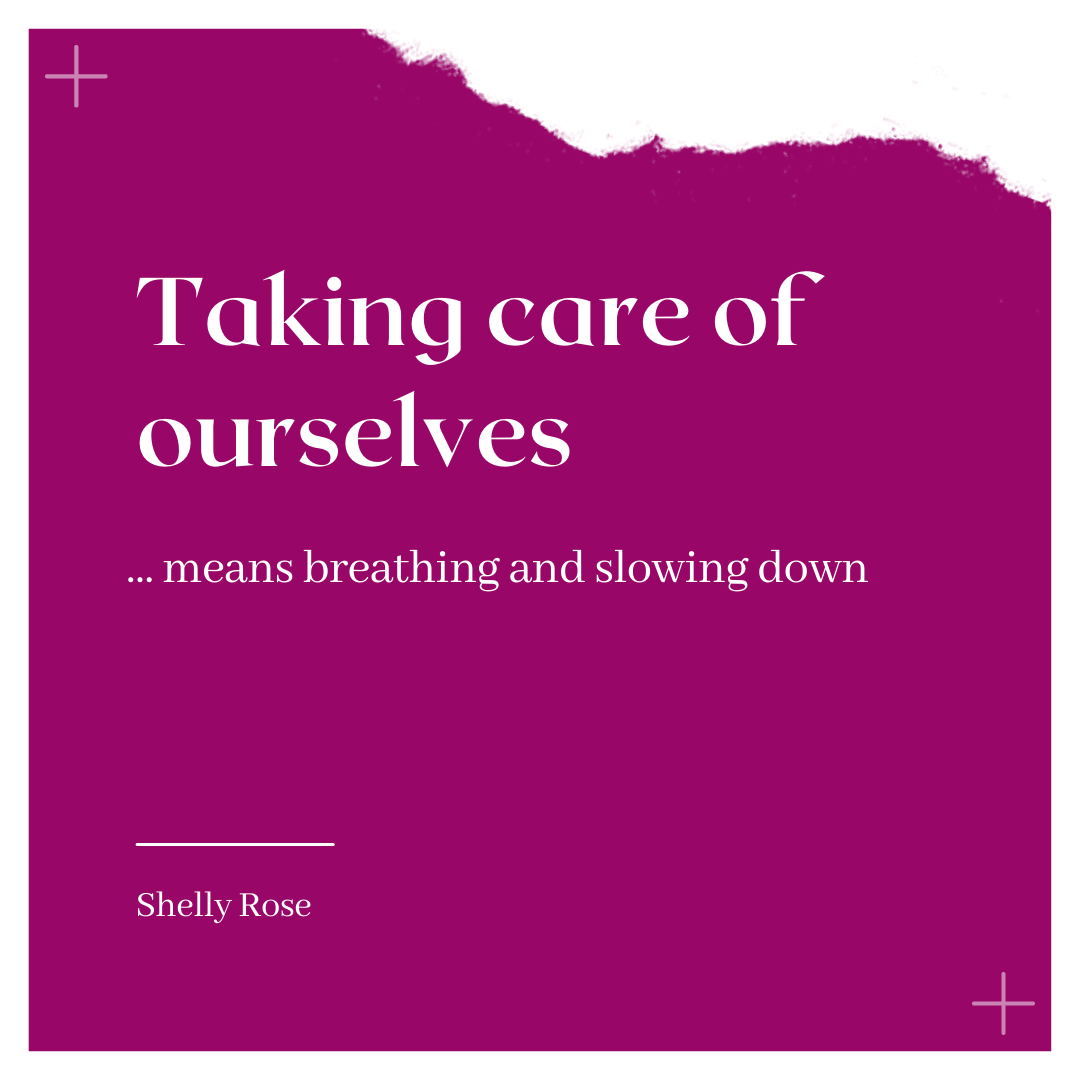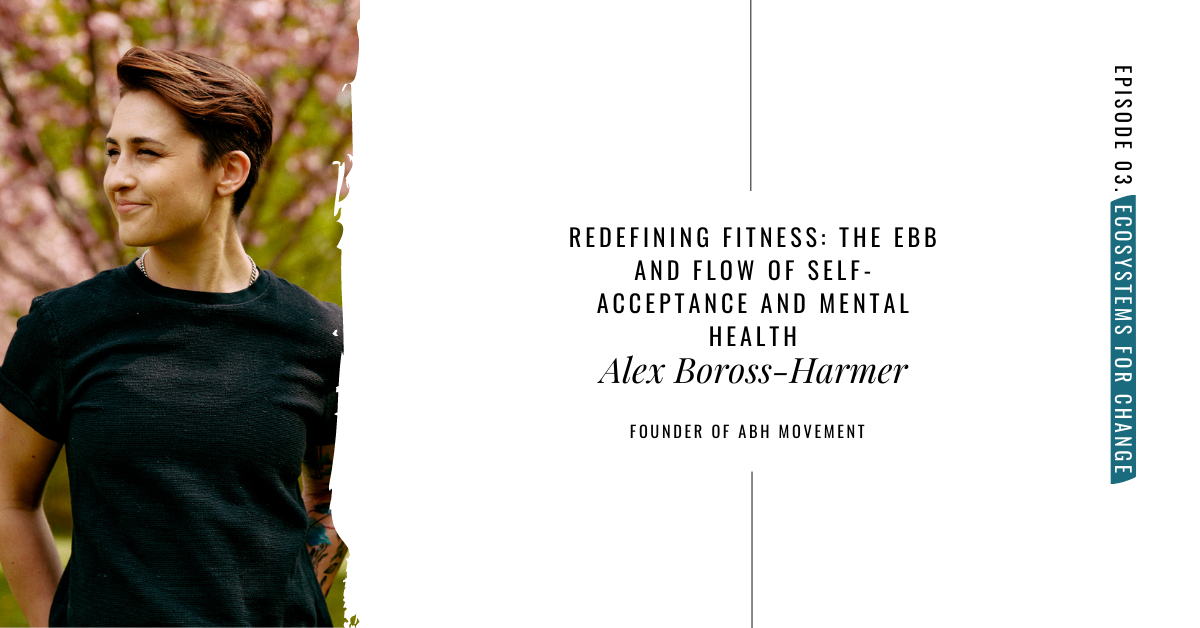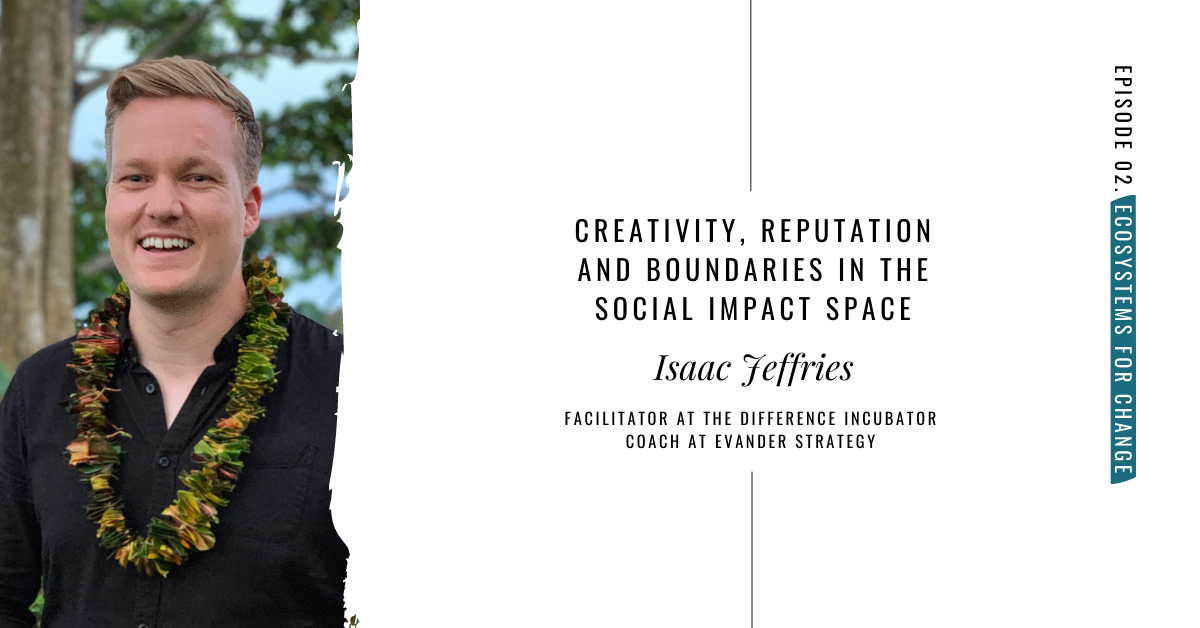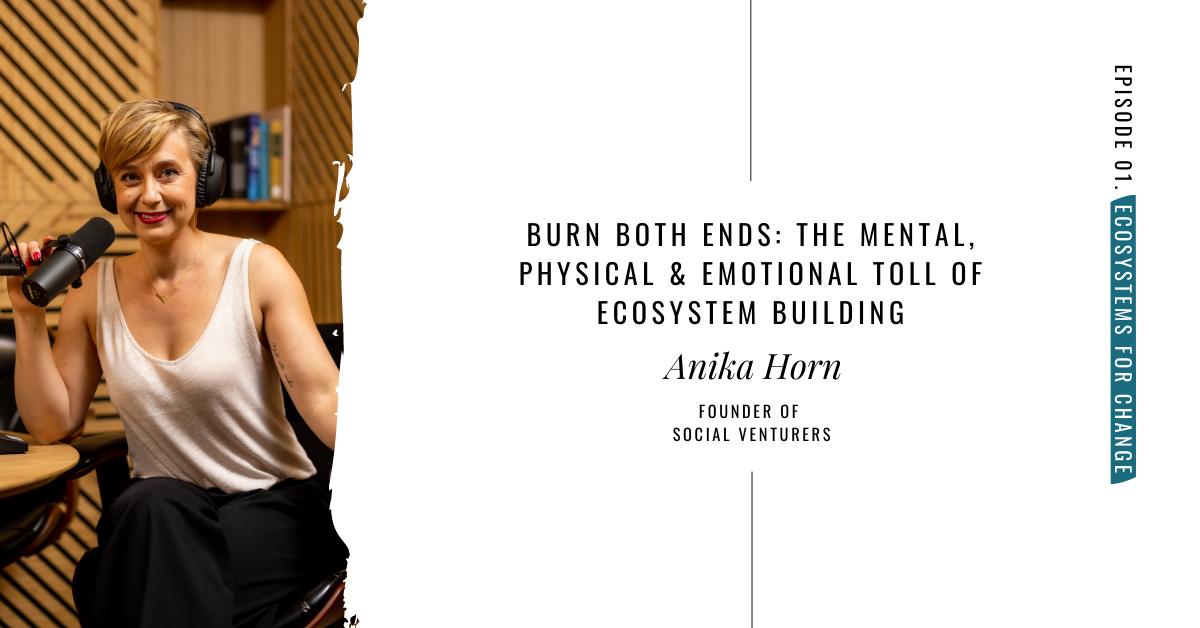Season 3 review: Work in Progress
At the end of 2017, I was eight months pregnant and I sat on a morning news tv set with my friend Shannon Siriano Greenwood. I had wedged myself into some heels, a cute maternity-meets-CEO wrap dress and I had put on more make-up than ever before because wow, I was on tv! Our reason for being there? Shannon and I created a conference called Rebelle Con because we saw so many of the working women and especially female small business owners struggle to not only make ends meet but to do so without completely sacrificing themselves. The news anchor was covering our first live event and Shannon explained in all her natural coolness that we all assume there’s this secret that others have figured out about how to be successful. After all, that’s how business ownership often is portrayed on social media. If you don’t make six figures in your first year while working in your pajamas, meeting the girls for cocktails and yoga retreats at least once a month and do it all with perfectly coiffed hair and a big smile on your face - it’s easy to feel like you’re doing it wrong. That other women entrepreneurs have it figured out, and you’re dying to know what it is.
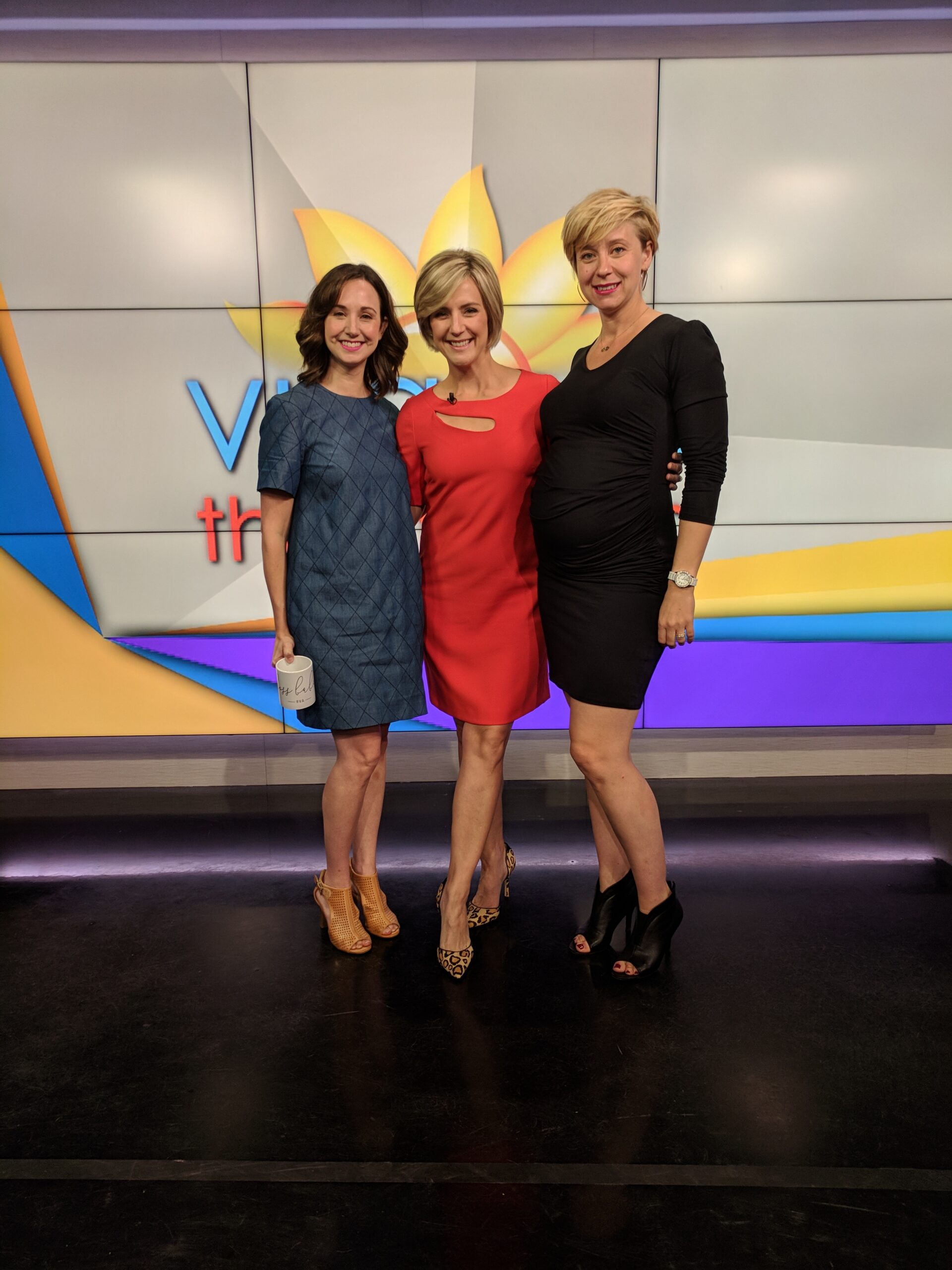
It was on the sofa of that tv set that Shannon dropped that truth bomb for me. She said, “There’s no magic formula. We’re all struggling and just trying to figure this out. Some of us are just better at glossing over the struggle.” Even though Shannon and I had been co-creating this conference, this little nugget of truth had NOT occurred to me. This LITTLE nugget hit me with like a ton of bricks. Right there, on that sofa, five years ago. And I took this insight with me ever since. I try to remind myself of this truth when I scroll through Instagram, and if you follow Marie Forleo, Jasmine Star or Amy Porterfield, you know what I mean. No hate on these ladies by the way, they’re doing their thing and I love it. But to this day, I hear Shannon in my head when I see the speaker line-up at a conference I want to go to or when I reach for a new self-help book that promises that THIS ONE really DOES contain the secret to a healthy and fulfilled life of servitude.
I set out on this season assuming that we all want to lead happier and healthier lives in which we don’t fall victim to burnout, stress and overwhelm. And this - by the way - does not just concern ecosystem builders and do-gooders. Most of us look for purpose in our lives, for work that fulfills us, for time and resources to spend on things we enjoy. Don’t we all dream of having meaningful, trusting relationships with our friends and families? Am I the only one who fantasizes about this ideal version of myself as a healthy, strong, resilient, equanimous and happy person? Some days, I still fantasize about the Anika who has her manageable workload under control, who breezes through her to-do list, resolves conflict and wakes up bursting with energy each day ready to make a difference in her community. And then I remember that she is a product of my imagination. I remember sitting on that tv set in 2015. I remember that there is no magic formula.
Fast forward five years to 2022. Season 3 confirmed that there is no magic formula, no secret ingredient. It all comes down to priorities, to looking at the big picture and deciding what kind of life we want to live, and making changes to our lifestyle accordingly.
None of my guests revealed a secret that will magically prevent us from burnout. But each of them brought several pieces of advice that work for THEM and that - hopefully - can work for us, too.
Season two really opened my eyes to the fact that the only constant is change. Everything and everyone around us are constantly changing: Our work, our networks, the parameters within which we try to change the world. Therefore, what a burnout-proof lifestyle looks like changes as frequently as we and the world around us does. Not to mention the small but significant fact that we are all entirely different people! With different personalities, characteristics, strengths, upbringing and preferences. I, for one, am finally starting to accept that we are constant work in progress. We are never done. We are not a final product and as such, we don’t only need to but we GET to constantly change and adapt to what life, work and our communities need from us at any given time.
What we have to pay attention to, then, is that in all this constant adaptation and response which - quite frankly - I find exhausting , we don’t lose sight of our own needs. If we don’t listen to ourselves and our bodies, we run the risk of burning the candle on both ends. Do you remember the times when phone batteries didn’t last all day and we planned our trips, errands and activities around when and where we might be able to plug it back in for a little re-charge? Imagine we paid that much attention to our own batteries. Imagine we had a little battery icon floating on our forehead at all times to let us know when we’re running dangerously low. This is one of the many lessons I took away from this season. Here are a handful of other insights I learned in season 3:
We need ecosystem builders and do-gooders to be around for a long-time and as we discussed in season 2, playing the martyr is not going to cut it. If we burn ourselves out in the name of social change, then who’s going to drive said change next year, or two years from now?
The mythology around celebrating people who are selfless and who set themselves on fire to keep other people warm - I just don't see that it's sustainable.
You can do that briefly, but I think what our industry needs are people who are going to be around for decades. A lot of the projects that people are working on, they need ten, twenty years of your time. And if you burn yourself out within those first few years, the industry misses out on what you can do over a much longer time span.
Feathers and bricks: What the universe is trying to tell you
First off, try to pay attention to what's already coming up. Oftentimes, the universe is already trying to nudge us in the right direction. Unfortunately, too often we’re so caught up in our day-to-day life that we’re not in a place to listen. Remember my conversation with April Rinne in season 2? Exactly. We must run slower. Here’s how Candace Dalmagne-Rouge described her experience of finally running slow enough to listen:
Sometimes I feel like the universe will give you feathers: They try to tell you that you need to make a change. A light feather is an indication that maybe a change needs to be made.
In my case, I thought "I see that feather and I'm moving on. Let's keep doing the same thing." So I got a couple of feathers. And then I feel like it the universe got fed up and it was like "You know what? You're not listening. Here's a brick."
I became pregnant with the twins.
That was a fundamental shift; perhaps if I had only one child, I would've probably continued on the same trajectory. But the fact that there were two little beings coming into the world told me that something had to change.
I couldn't continue on this path of burning the candle at both ends. Something had to shift.
Physical health
What I’ve learned in this season is that it’s all connected. How you eat and how much you sleep and how frequently you move your body has a direct impact on how your nervous system copes with stress and how you show up as a changemaker. As Shelly said, we are not taught this in school.
Especially when we talk about longevity in our field, like Isaac emphasized, we can’t do this work sustainably if our bodies can’t keep up as we learned in episode 5 with David Hirsch.
Look, I know that diet and nutrition are SUPER loaded topics for most of us. Unfortunately, physical health is so often reduced to looks and weight and body image and what you look like in the gym or at the beach but really, that is the tiniest sliver of the overall picture. When we think about our physical health, I think we can all point to one or two habits and guilty pleasures that we could be better about, that we probably SHOULD be better about. But, you also have to live a little and a life full of responsibility and discipline would certainly be a little dull and boring - don’t you think?
Once you learn what it is that people really want to do with their lives and you can tie your approach to that, they start to realize what they're really working for. And if it's worth it to them, they'll do it.
Mental health
Set boundaries
The idea of setting and upholding boundaries smacked me in the face in episode 2 of this season. And no surprise, it came from Isaac Jeffries who I invited onto this show for exactly this reason.
People think that you're going to be a good little robot and that you're going to say yes to work. And that you would never besmirch your name and your character by not doing what you said.
I don't know hold my reputation in that high of a regard, but this is a very important distinction to me: There is the reputation that you have around your output, and there's the reputation you have around your ethics. And I think they're very easy to get confused.
Much like my friend David Hirsch, I will throw myself at the work and if it’s the last thing I do. Because I think I can make a difference. Because I think I can give more than anyone else. Because I think I can endure more for longer than other people. And I’ve partly justified this behavior by equating the quality of my work with my reputation. I wanted to be known for doing excellent, hiqh-quality work that is ideally delivered ahead of schedule. I was worried that if I fell short of that output, I wouldn’t be hired anywhere else and I would be a disappointment. Worst of all, I thought it would make me as a person less valuable, less lovable, less worthy. It was the perfect recipe for burnout. What this conversation made me realize was that upholding your boundaries and ethical standards is much more important long-term than delivering a good output. Because a) what good output means is subjective and b) if I were to hire someone for a project, I’d much rather work with a mature professional who has boundaries and an ethical code in place than a do-gooder who is willing to burn themselves out to get the work done. Damn, I wouldn’t hire myself!
We would ALL be better off if we stopped holding ourselves in too high regard. Isaac and I recorded this conversation in April of 2022. When I listened to him talk about not holding ourselves in too high regard, I didn’t just hear a penny drop loud and clear, I felt it deep inside my ego. In my role as an ecosystem builder in the Shenandoah Valley, I’ve felt the need to get everything right from the jump, to prove my value and prove that I know what I’m doing beyond the shadow of a doubt. But since I talked to Isaac I’ve shifted this in my own mind and it actually has taken a lot of the pressure off. I don’t WANT to hold myself in high regard. I much prefer the idea of learning and practicing in public and to allow others to learn from my mistakes. While the output may sometimes be great and other times questionable, the one thing I DO hold in high regard is my reputation as someone who does her work ethically and with great care and consideration for the community I’m here to serve.
Honor your needs
Another key insight I learned in this season is the importance of honoring our own needs. In many conversations in this season I observed myself saying things like “I’d rather check one more thing off my to-do list than pause and listen to myself.” The second or third time it happened, I realized how much work I have ahead of me. In other words, I’m not very good at honoring my own needs and it’s something I need to work on without feeling guilty which - by the way - also came up a lot in this season. We are so conditioned to be productive and always busy that taking deliberate breaks brings with it this meta-shame. If you’re wondering what it looks like to honor your own needs, take a page from Alex’s book:
I love my work life, but choosing to take care of my own needs has made my work so much more enjoyable. It sounds so superficial to say "I'm taking care of my own needs.", but in the context of burnout, I think so many people are doing it because they took a bubble bath, poured themselves a glass of wine and watched the Netflix for half an hour.
I used to like get up and check the list and go and go and go and go and go and go and go. And once I took a Netflix break, I felt shame about it because I wasn't being productive enough.
It was an opportunity lost to do more, to add another thing to the business, to add another thing to my plate. And the second I started to remind myself that watching Netflix and taking walks and breaks during the day isn't just a nice thing or lazy but necessary to complete the cycles of stress that we go through on a daily basis, it allowed me to enjoy my craft.
Ask for help
In episode 5, David and I joked about the fact that we will both abuse ourselves to no end just to serve. David also pointed out that when we as ecosystem builders are among ourselves, we pour gasoline on that bright flame: We burn each other out accidentally because we encourage each other to do more and try new approaches because we are genuinely EXCITED about the work and we want to see each other thrive. The issue with us helper-types is that we don’t like the idea of the helper needing help.
I don't like absorbing resources. I don't like asking for help. The helpers don't like doing that. No, I'm the provider of things. And then I feel like I'm absorbing a resource that somebody else needs. There are so many people that have so many more needs than us. We all feel that way. It's why we do our work. When I was in the Christian space, I never asked for a prayer from people. They would gladly have done it, but I thought that my requests weren't that important.
But that meant I was depriving other people of the opportunity to engage and be part of my community.
Just the thought of admitting weakness and asking others for help makes my cringe. I’d rather suffer in silence than ask someone else for help. I mean, all of my friends have their own stuff to worry about, families to take care of, ecosystem battles to fight - don’t they? BUT since I a) don’t hold myself in that high regard and b) want to practice what I preach, I actually bit the bullet and asked for help during the production of season 3.
I needed some advice on my work in the Shenandoah Valley. Prior to this season, I would have re-read all the books and tried to whiteboard the issue out on my own. But thanks to season 3, I reached out to my LinkedIn network and a few trusted fellow ecosystem builders to ask for help. And you know what? I was showered with people’s offers to help! I got comments and private messages, emails and texts from all over. Just like David had promised - my network seemed to relish the opportunity to lend an ear or a hand, share their perspective on what I was struggling with and offer advice. It was beautiful. And you know what? It actually made me a better ecosystem builder!
Emotional & spiritual health
When it comes to preventing burnout, we’ve talked about the physical and mental aspects of our health. One thing that rarely comes up but that - I think we should talk more about - is our emotional and spiritual health. Now, granted, as an atheist raised on the tailend of socialism in East Germany neither emotional intelligence nor spirituality are health aspects I’m intimately familiar with. That’s why I host this show - so I can learn more from people who know a lot more than me and have first hand experiences that we can all learn from.
A conversation that touched on this was episode 4 with Candace Dalmagne-Rouge in which she talks about her transition from the Silicon Valley startup life to becoming a parent to twins and turning her personal experience into a social enterprise serving others. Now, before you ask what emotions have to do with entrepreneurship, social change and transforming communities, let me just say: A LOT. Getting on the entrepreneurial roller coaster is a deeply emotional experience. Having a business fail - which about 90% of startups do within the first five years - is a deeply emotional experience. When a business takes off and succeeds, it’s an emotional experience. The first paying client, the last outstanding invoice. If you put your sweat, blood and tears into creating something - be it a business or a healthier, wealthier, more equitable community, it’s going to be emotional.
Friends, it’s personal. And when it’s personal, it’s emotional.
And while we can apply all of the practices we learned about in this season on the day-to-day, there are also occasions that we simply can’t do justice in the day-to-day. Way too often in our busy lives, we are too caught up in the run of the mill to pay our dues to the special events and transitions that are part of life: Celebrations of success and accomplishment as well as disappointments, grief and failure. Having talked to Candace about this at length, I’m convinced we all need more ceremonies in our lives
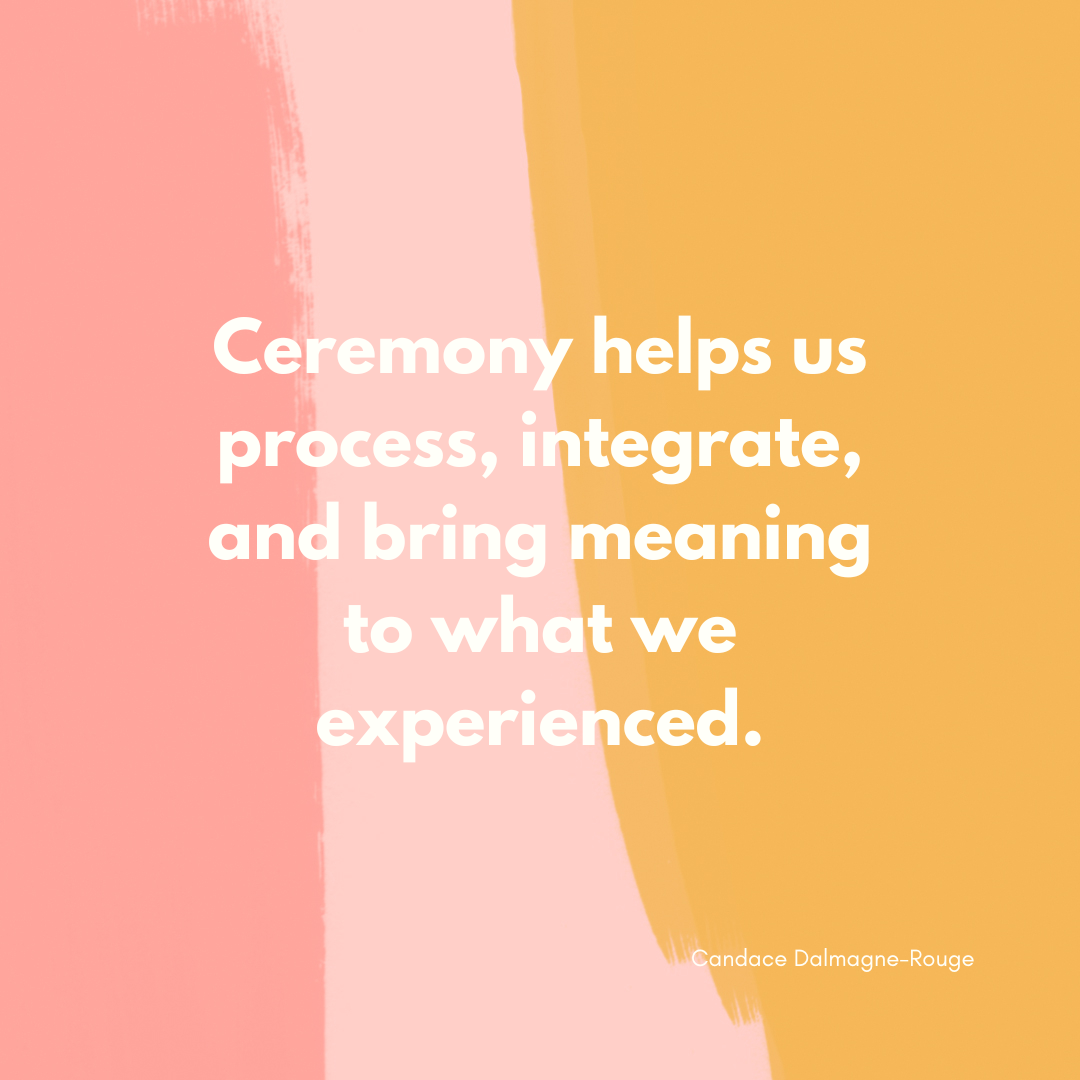
And while we can apply all of the practices we learned about in this season on the day-to-day, there are also occasions that we simply can’t do justice in the day-to-day. Way too often in our busy lives, we are too caught up in the run of the mill to pay our dues to the special events and transitions that are part of life: Celebrations of success and accomplishment as well as disappointments, grief and failure. Having talked to Candace about this at length, I’m convinced we all need more ceremonies in our lives,
Big picture
This all takes practice and that’s the most annoying thing. Sticking with mediation for a week is not going to show the benefits. That’s why it’s a lifestyle: It’s how you live your life every day. Not just during vacation, not just during that 3-day self care retreat. It’s how you go about living life day in and day out. It’s the routines, the practices, the repetition. But that’s also a good thing because if you slip - and trust me WE ALL DO - it’s not catastrophic because your life is built around the daily practices and if you have a 235 day-meditation streak and you miss one, you’re not back to square 1. You have built the habit like a muscle and you can always fall back on this sustainable lifestyle you have not only crafted for yourself but live day in and day out.
Obviously, this looks differently for each of us. Like our fingerprint, our physical, mental, emotional and spiritual make-up and needs are beautifully unique to each of us. Eating well, resting or moving our bodies looks different for David, for Candace, for Shelly, as it does for me. My boundaries need to be different from Isaac’s and Isaac’s are different from Alex’s. As it should be.
I hope this season has shown you that you’re not alone in feeling overwhelmed, overworked and exhausted. I hope you picked up one or two ideas for how you might approach some area of your life a little differently. We’re not broken. We don’t need to be fixed. We are simply constant works in progress.
Be patient with yourself. Ask for help. And the next time you feel like you should be doing more, DON’T/ Just don’t. I said it before and I’ll say again: If you’re working to make a difference in the world or in your community, you’re already doing A LOT. Throw those self-help books in the trash and reach out to your friends and family, to me or even one of our interview guests if you want to talk.
You are not alone in this.
Key resources from season 3
- Martyr in Recovery
- What Works with Tara McMullin Ep 379: Why do we choose squeezing more in over taking time off?
- Show Your Work!: 10 Ways to Share Your Creativity and Get Discovered, Austin Kleon
- Brené Brown: Dare to Lead podcast
- Dr. Joe Dispenza
- BetterHelp
- Sustainable Youth Ministry: Why Most Youth Ministry Doesn’t Last and What Your Church Can Do about It, Mark DeVries
- The Body Keeps The Score, Bessel van der Kolk
- Your Brain is Always Listening, David G. Amen
- Atomic Habits: An Easy & Proven Way to Build Good Habits & Break Bad Ones, James Clear
- Can't Even: How Millennials Became the Burnout Generation, Anne Helen Petersen
Browse Season 3
S03E03 – Redefining Fitness: The Ebb and Flow of Self-Acceptance and Mental Health with Alex Boross-Harmer
Alex Boross-Harmer takes a holistic approach to helping others move their body. Alex talks about making the fitness industry more human and honoring their own needs.
Read MoreS03E02 – Creativity, Reputation and Boundaries in the Social Impact Space with Isaac Jeffries
Isaac Jeffries and I chatted about setting and upholding boundaries to ensure we don’t disappoint ourselves or the people around us who matter.
Read MoreS03E01 – Burn Both Ends: The Mental, Physical, and Emotional Toll of Ecosystem Building
In season 3, I talk to practitioners who can help us build a solid foundation of physical, mental and emotional health so that we can stay in this game of ecosystem building for a long time to come!
Read More